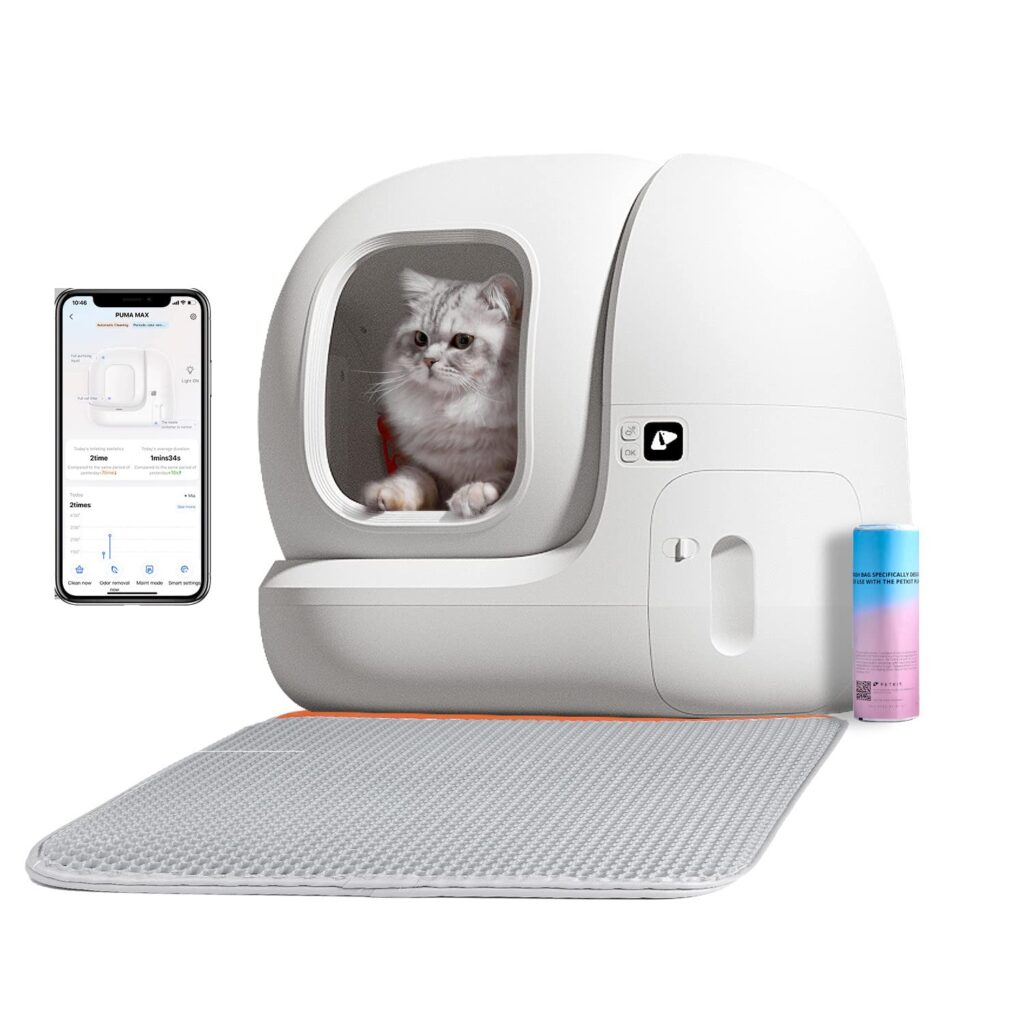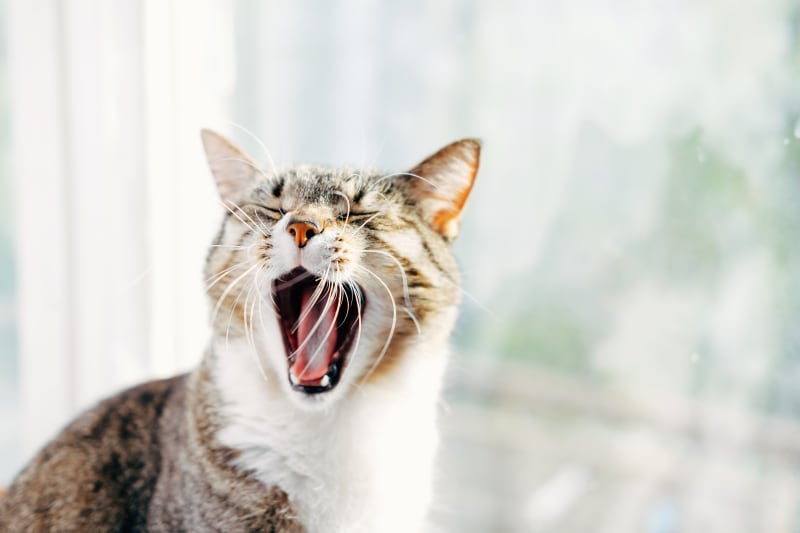Cat poop can be half firm and half soft due to various common reasons. These reasons include dietary changes, stress or anxiety, dehydration, intestinal parasites, underlying health conditions, lack of exercise, and medication side effects.
It’s essential to address these factors in order to ensure your cat’s overall health and well-being. Cats are known for their independent nature and mysterious ways. However, their bathroom habits can reveal a lot about their overall health. As a cat owner, you may have noticed that your feline companion’s poop is sometimes half firm and half soft.
This peculiar phenomenon may raise concerns and leave you wondering about the underlying causes. We will explore the seven most common reasons behind this occurrence. By understanding these reasons, you will be better equipped to address any potential concerns and ensure your cat’s digestive system is in optimal condition.
Contents
- Overfeeding or underfeeding
- Sudden changes in diet
- Low-quality or inappropriate food
Cat poop consistency can vary based on diet-related causes. Overfeeding can lead to soft, loose stool, while underfeeding can cause firmer stool. Sudden changes in diet can also affect the poop consistency as it takes time for a cat’s digestive system to adjust to new food. It is important to introduce new food gradually to avoid digestive distress. Low-quality or inappropriate food lacking in essential nutrients can result in irregular poop consistency. Cats have specific dietary requirements, and feeding them a balanced and appropriate diet is crucial for their overall health, including their digestive system. Consulting with a veterinarian to ensure the cat’s diet meets their specific needs is recommended.
2. Digestive Issues
One of the possible causes of half firm, half soft cat poop is digestive issues. Digestive issues can arise due to various factors, including intestinal parasites, inflammatory bowel disease, and food allergies or sensitivities. Intestinal parasites such as worms can disrupt the normal digestion process, leading to inconsistent stool texture. Similarly, inflammatory bowel disease can cause inflammation in the digestive tract, resulting in changes in stool consistency. Additionally, food allergies or sensitivities can also trigger digestive problems and affect the firmness of cat poop. Identifying and addressing these underlying digestive issues is essential for maintaining optimum feline health and preventing further complications.
3. Dehydration And Hydration Issues
Dehydration and hydration issues can contribute to the inconsistency of your cat’s poop. Lack of water intake can lead to dehydration, potentially causing the stool to become harder. Encourage your cat to drink more water by providing fresh water and considering a water fountain. On the other hand, excessive water intake may result in loose stools. It could be a sign of an underlying health condition such as kidney disease or dysfunction. If you notice your cat’s poop is consistently watery, it’s essential to consult a veterinarian for further evaluation. Maintaining the right balance of water intake is crucial for your cat’s digestive health.
4. Stress And Anxiety
Cat poop that is half firm and half soft can be a sign of stress and anxiety. These common reasons can include changes in the cat’s environment, diet, or routine. It’s important to address these issues to promote your cat’s well-being.
Environmental changes, such as moving to a new home or introducing new pets to the household, can cause stress and anxiety in cats. This can lead to changes in their bowel movements, including an inconsistency in the firmness of their stool. Cats can also experience separation anxiety when their owners are not around, which can result in digestive issues. Additionally, medical procedures or treatments can significantly impact a cat’s stress levels, leading to changes in their stool consistency.
It is important to note that cats are highly sensitive animals, and any form of stress can affect their overall well-being. Therefore, it is crucial to ensure a stable and calming environment for your feline companion to minimize the chances of stress-related bowel irregularities. Providing them with a comfortable and familiar space, regular playtime, and establishing a routine can help reduce their stress levels and promote healthier bowel movements.
5. Medications And Supplements
Cat poop consistency can be an indicator of their overall health. Medications and supplements can play a role in causing changes in the texture of cat poop. Antibiotics or other medications can lead to softer stool due to altered gut bacteria. On the other hand, probiotics or dietary supplements can help maintain a healthier digestive system and promote firmer stool. It is important to note that certain treatments can have side effects on a cat’s bowel movements. These side effects may include looser or softer stool. Paying attention to any changes and discussing them with a veterinarian is crucial to ensure the well-being of your furry friend.
Age-related factors can contribute to a cat’s poop being half firm and half soft. These factors may include changes in digestion, dietary needs, or underlying health conditions.
Blog post title Heading Subheading under headingSenior cats and decreased digestive function
As cats age, their digestive function can start to decrease, leading to changes in their poop consistency. Senior cats may experience a slower digestion process, resulting in poop that is half firm and half soft. This can be attributed to a variety of age-related factors.
One factor is the decreased digestive function that occurs naturally with age. Older cats may have a reduced ability to break down food, leading to differences in their stool texture. Another contributing factor is the metabolic disorders that can occur in older cats. These disorders can affect the way nutrients are absorbed and processed by the body, resulting in changes in poop consistency.
Furthermore, age-related changes in gut microbiota can also contribute to variations in stool texture. The balance of bacteria in the digestive tract can shift as cats age, which can impact their digestion and ultimately the consistency of their poop.
7. Medical Conditions
Cat poop consistency can vary depending on several factors, including diet, hydration, and overall health. However, there are certain medical conditions that can cause cat poop to be half firm and half soft.
One common medical condition that can lead to this type of poop consistency is pancreatitis. Pancreatitis is inflammation of the pancreas, which can impact digestion and result in irregular stools.
Another medical condition that may cause cat poop to be half firm and half soft is hyperthyroidism. Hyperthyroidism occurs when the thyroid gland produces an excess of thyroid hormones, leading to changes in digestion and bowel movements.
Additionally, diabetes can also have an effect on cat poop consistency. Fluctuations in blood sugar levels can result in inconsistent bowel movements.
It’s important to note that a proper diagnosis from a veterinarian is crucial to identify and address any underlying medical conditions causing this type of stool consistency. Regular check-ups and proper treatment can help alleviate any discomfort your cat may be experiencing and ensure their overall health and well-being.

Credit: www.visitlakecounty.org
Frequently Asked Questions On Cat Poop Is Half Firm, Half Soft: 7 Most Common Reasons
Why Is My Cats Poop Half Solid Then Runny?
Cats may have half solid and runny poop due to a variety of reasons, such as dietary changes, parasites, or digestive issues. It is best to consult a veterinarian for a thorough examination and appropriate treatment for your cat’s specific situation.
Why Is My Cat Poop Semi Solid?
Semi-solid cat poop may indicate an issue with your cat’s digestion or diet. Factors like dietary changes or infections can lead to less firm stool. It’s important to consult a veterinarian to determine the underlying cause and provide the necessary treatment for your cat’s health.
What Does It Mean If My Cat Has Soft Mushy Poop?
If your cat has soft, mushy poop, it could indicate an issue with their digestion. It’s important to monitor their diet and ensure they are getting the right balance of nutrients. If the problem persists or worsens, consult a vet for proper diagnosis and treatment.
Why Is My Cat’s Poop So Long And Thin?
Long and thin cat poop can be a sign of dehydration or constipation. Ensure your cat drinks plenty of water and eats a balanced diet with enough fiber. If the problem persists, consult a veterinarian for further evaluation and treatment.
Conclusion
Understanding why your cat’s poop is half firm and half soft can help you address potential health concerns. From diet changes to stress and parasites, there are several common reasons to consider. By monitoring your cat’s litter box and sharing any changes with your veterinarian, you can ensure your feline friend remains happy and healthy.
Remember, consistency in your cat’s bowel movements is key to their overall well-being.

Katie Lindsey is a passionate cat lover and founder of Cats Solution, a comprehensive resource for all things feline. With a lifelong love for cats and extensive knowledge in their care and behavior, she provides expert advice and solutions to cat owners. Through her website, Katie fosters a supportive community where cat enthusiasts can find guidance and heartwarming stories. A dedicated advocate for animal welfare, Katie also promotes responsible pet ownership and adoption. Join her on this purr-fect journey celebrating the joy of feline companionship.



